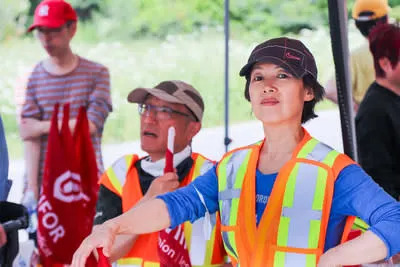Unifor reaches tentative agreements with casinos in Pickering and Ajax
TORONTO, Aug. 4, 2022 /CNW/ - The strike at two Great Canadian Gaming Corporation (GCGC) casinos in Ontario could soon be over after tentative agreements were signed today.
"My sincere congratulations to the Local 1090 members who took on a powerful employer to fight for what was fair," said Lana Payne, Unifor National Secretary-Treasurer.
Unifor members at Pickering Casino Resort and Casino Ajax have been on strike since July 29, 2022. Details of the tentative agreement will be released following the membership ratification votes to be held on August 5.
"These were tough negotiations and we were able to get to a tentative agreement because members took a principled stand for better working conditions," said Corey Dalton, President of Local 1090. "Gaming sector workers deserve fairness during these uncertain economic times."
A coordinated bargaining table for Unifor members at GCGC properties met in July 2022 seeking improvements to wages, benefits, and pensions. Unifor negotiators were also trying to reduce the employer's reliance on precarious part-time jobs.
On July 23, 2022 Unifor negotiators signed agreements for GCGC sites Great Blue Heron Casino, Casino Woodbine, Shorelines Casino Thousand Islands, and Shorelines Casino Peterborough, Elements Casino Mohawk, and Elements Casino Brantford.
Unifor is Canada's largest union in the private sector, representing 315,000 workers in every major area of the economy. The union advocates for all working people and their rights, fights for equality and social justice in Canada and abroad, and strives to create progressive change for a better future.
SOURCE Unifor
View original content to download multimedia: http://www.newswire.ca/en/releases/archive/August2022/04/c6761.html














.jpg)


